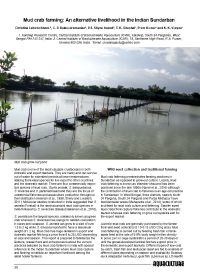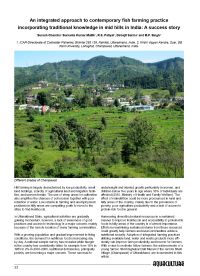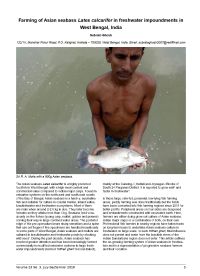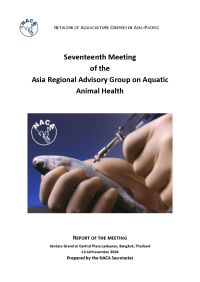Mud crab is one of the most valuable crustaeceans in both domestic and export markets. They are hardy and can survive out of water for extended periods at lower temperatures, making them idea for live export. Mud crab fattening predominates farming practices in Sundarban as opposed to grow-out culture. This report describes current practces adopted by mud crab farmers in India with special reference to the Indian Sundarban, where mud crab capture and farming are an important livelihood for small holder farmers.
Farming in the mid hills is largely characterised by small land holdings, low productivity, scarcity of agricultural land and irrigation facilities, and uneven terrain. Low returns in farming and unemployment problems in the mid-hills are compelling youth to move to the cities to find livelihoods. Adoption of integrated farming practices utilising available land, water and waste products more efficiently can improve farm productivity and income. The achievements of a young farmer from a remote village working to motivate others are documented in this article.
The Asian seabass Lates calcarifer is a highly preferred foodfish in West Bengal, with a high meat content and commercial value compared to Indian major carps. Found in estuarine systems on the north-east and south-east coasts of the Bay of Bengal, Asian seabass is a hardy, euryhaline fish and suitable for culture in coastal marine, inland saline, brackishwater and freshwater ecosystems. During the past decade, Asian seabass has received greater attention and has been increasingly farmed commercially in modified-extensive systems in large freshwater impoundments (termed ‘mithen gheri’ in local dialect).
NACA and the Bangladesh Shrimp and Fish Foundation collaborated to organise a study tour programme focused on shrimp operations in Thailand for fourteen Bangladesh officers during 29 April to 2 May 2019. The study tour was supported by the Winrock Foundation and coordinated by Dr Cherdsak, the outgoing Director General of NACA. The group met with CP Executives, DOF-Thailand and Banjong Farm in Chachoengsao Province.
This report summarises the proceedings of the 17th meeting of the Advisory Group, held 13-14 November 2018 in Bangkok, Thailand. The group's role includes reviewing disease trends and emerging threats in the region, identifying developments in global aquatic disease issues and standards, evaluating the Quarterly Aquatic Animal Disease Reporting Programme and providing guidance on regional strategies to improve aquatic animal health management.




